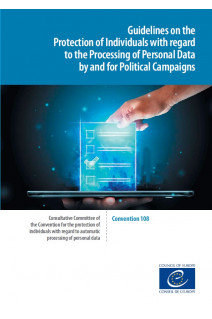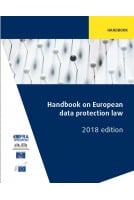How to reconcile the privacy rights of the voter and the democratic obligations of political campaigns?
Elections in most countries have become increasingly “data-driven”. A “Political influence industry” operates in many countries and now enables campaigns to profile the electorate with increasing accuracy. Effective political communication through political campaigning is central to democratic government. Voters need information about candidates, political parties and their future plans and policies. Political campaigns can more effectively engage with the electorate if they have accurate information on voters’ beliefs, preferences and intentions.
As political campaigns are employing contemporary digital technologies and communications tools, they are able to target voters with increasing sophistication. In many countries, campaigns can profile the electorate with increasing accuracy and deliver “micro-targeted” messages. Trust and confidence in the integrity of elections can be undermined by hidden practices that permit manipulation of data for the delivery of such focussed messages. Beyond political engagement, political microtargeting can also lead to voter suppression, and the discouragement of voters from exercising their democratic rights. Convention 108+ is explicitly rooted in a broad aim “to secure the human dignity and protection of the human rights and fundamental freedoms […].” It speaks of “personal autonomy based on a person’s right to control of his or her personal data and the processing of such data” and recognises that the “right to protection of personal data is to be considered in respect of its role in society and […] has to be reconciled with other human rights and fundamental freedoms.” Protecting the right to privacy in political campaigns is thus crucial to free and fair elections.
These Guidelines provide practical advice about how to reconcile the privacy rights of the voter and the democratic obligations of political campaigns. They offer a framework through which individual data protection authorities, and other regulators, may provide more precise guidance tailored to the unique political, institutional and cultural conditions of their own democratic states in compliance with Council of Europe’s Convention 108+.
1. INTRODUCTION 2. SCOPE AND PURPOSE 3. DEFINITIONS FOR THE PURPOSES OF THE GUIDELINES 4. THE APPLICATION OF CONVENTION 108+ TO POLITICAL CAMPAIGNS AND CAMPAIGN ORGANISATIONS
4.1. Legitimacy of data processing and quality of data (Article 5)
4.2. Processing of the special category of data on political opinions (Article 6)
4.3. Data security in political campaigns (Article 7)
4.4. Transparency of processing of personal data in political campaigns (Article 8)
4.5. Rights of data subjects (Article 9)
4.6. Additional obligations of political campaigns (Article 10)
5. RECOMMENDATIONS FOR SUPERVISORY AUTHORITIES (ARTICLE 15)







